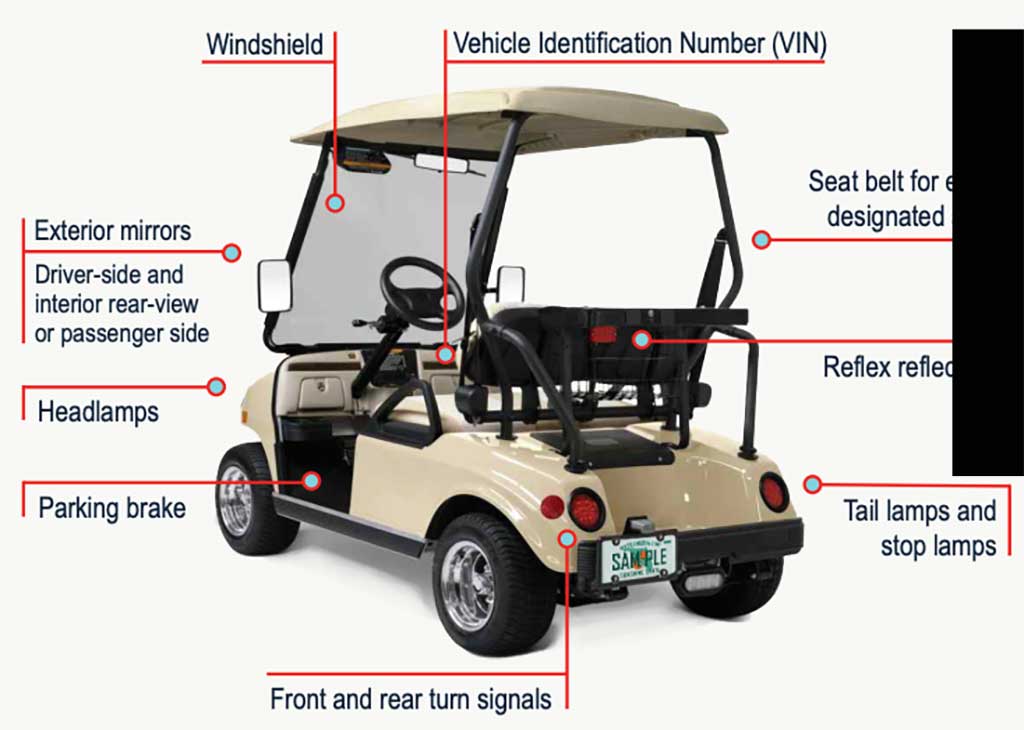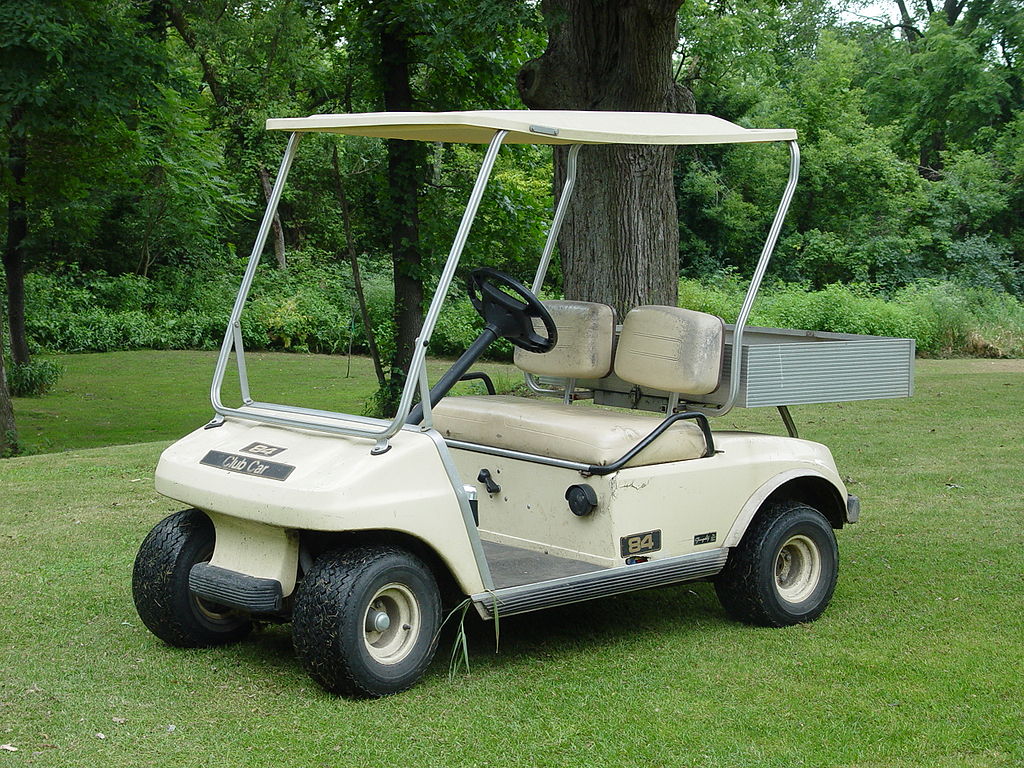QUICK POLL: Should Miami Springs allow regular golf carts on Miami Springs Streets?
[forminator_poll id=”171564″]
At this week’s Miami Springs City Council Meeting, there was a ton of discussion about Golf Carts and Low Speed Vehicles. You can read the differences between Low Speed Vehicles and Golf Carts further below.
A lot of talk was made about the safety of golf carts compared to the safety of an LSV or Low Speed Vehicle. I will argue that golf carts are far safer than bicycles. Golf carts are far safer than electric scooters. Yet bicycles and electric scooters are perfectly legal to use across Miami Springs.
It seems odd to me that we will prevent drivers from using golf carts that have four wheels, are more stable, and are more visible than a bicycle or electric scooter. But it’s perfectly legal for a 14 year old to ride a bicycle on NW 36th Street.
My 10 year old can ride his bike or electric scooter to Springview Elementary, but my wife can’t drive a golf course to the same location? I’m sorry, but that seems silly.
Can a tragedy happen?
Yes. A tragedy can happen with a golf course. No different than my child can get run over on his bicycle. Now, I don’t let my child ride his bike on Curtiss Parkway or NW 36th Street, because those streets are more dangerous. But most of our streets have such light traffic, they are perfectly safe for walking, skating, biking, and yes…using a golf course.
Legalize Golf Carts
In our humble opinion, we should legalize golf carts throughout Miami Springs with the exception of State and County Roads like:
- NW 36 Street
- Curtiss Parkway
- Royal Poinciana Blvd / South River Drive
- LeJeune Road
We are a Country Club Community. Our City’s founding name was originally Country Club Estates. We should embrace the lifestyle and allow for the usage of Golf Carts within the city.
Golf Carts vs Low Speed Vehicles
Below is information from the Florida Department of Highway Safety explaining the difference between LSVs and Golf Carts.
Low Speed Vehicles
Section 320.01(41), Florida Statutes, defines LSVs as “any four-wheeled vehicle whose top speed is greater than 20 miles per hour, but not greater than 25 miles per hour.” LSVs must be registered, titled and insured with personal injury protection (PIP) and property damage liability (PDL) insurance. Any person operating an LSV must have a valid driver license in their immediate possession.
LSVs may be operated only on streets where the posted speed limit is 35 MPH or less and must be equipped with the following safety equipment:
- Headlamps;
- Front and rear turn signals;
- Stop lamps;
- Tail lamps;
- Reflex reflectors, red – one each side and one on the rear;
- Exterior mirror on the driver side and an interior rear-view mirror or exterior mirror on passenger side;
- Parking brake;
- Windshield;
- Seat belt for each designated seat; and a
- Vehicle identification number (VIN).
To title and register an LSV, take the following documents to a Motor Vehicle Service Center:
- Manufacturer’s Certificate of Origin;
- Form HSMV 82040 (Application for Title);
- Proof of Florida insurance (minimum $10,000 PDL and $10, 000 PIP);
- Identification – driver license, ID card or passport; and
- Applicable fees
- Title fee
- Plate fee
- Initial registration fee, if applicable
- Registration fee (varies by weight of vehicle)
Golf Carts
Golf carts are defined in section 320.01(22), Florida Statutes, as “a motor vehicle that is designed and manufactured for operation on a golf course for sporting or recreational purposes and that is not capable of exceeding speeds of 20 miles per hour.” Golf carts may be operated on roadways that are designated for golf carts with a posted speed limit of 30 mph or less. Golf carts may also cross a portion of a county road which intersects a roadway that is approved for golf carts, or that intersects a golf course or mobile home park. In both examples the roadway should have signs posted that golf carts share the roadway. The operation of golf carts on roads must comply with any more restrictive ordinances enacted by local government and should be verified prior to operating these vehicles.
Golf carts are not required to be titled or registered and, therefore, are not required to be insured with PIP and PDL insurance coverage. Golf cart operators are not required to have a driver license; however, to operate a golf cart on designated public roadways, a person must be 14 years or older.

Converted Golf Carts
Golf carts can be converted to LSVs (see LSV safety equipment requirements above). Buyers should be aware that if a golf cart has been modified to an LSV, the registration and title date do not reflect the manufacture date (age of the vehicle). Instead, it indicates the year it was registered and titled. This means that the vehicle could be older than the date listed on the title.
Titling and Registering a Converted Golf Cart
Prior to titling and registering a converted golf cart, the vehicle must be inspected and assigned a VIN at a Motorist Services Regional Office. The converted golf cart must be street-legal before applying for title and registration.
Trailer the converted golf cart to a Motorist Services Regional Office and present the following documents and fees for an inspection, VIN assignment, title and registration:
- Manufacturer’s Certificate of Origin or a bill of sale for the golf cart Form HSMV 84490 (Statement of Builder) completed by customer and Compliance Examiner/Inspector;
- Form HSMV 86064 (Affidavit for Golf Cart Modified to a Low Speed Vehicle);
- Original bill(s) of sale or receipt(s) for all parts used to convert the golf cart to a low speed vehicle;
- Certified weight slip for the converted golf cart;
- Form HSMSV 82040 (Application for Title);
- Proof of Florida insurance (minimum $10,000 PDL and $10,000 PIP);
- Sales tax or sales tax exemption information for all parts;
- Identification – driver license, ID card or passport; and
- Applicable fees
- Inspection fee
- Title fee
- Plate fee
- Initial registration fee, if applicable
- Registration fee (varies by weight of vehicle)




















